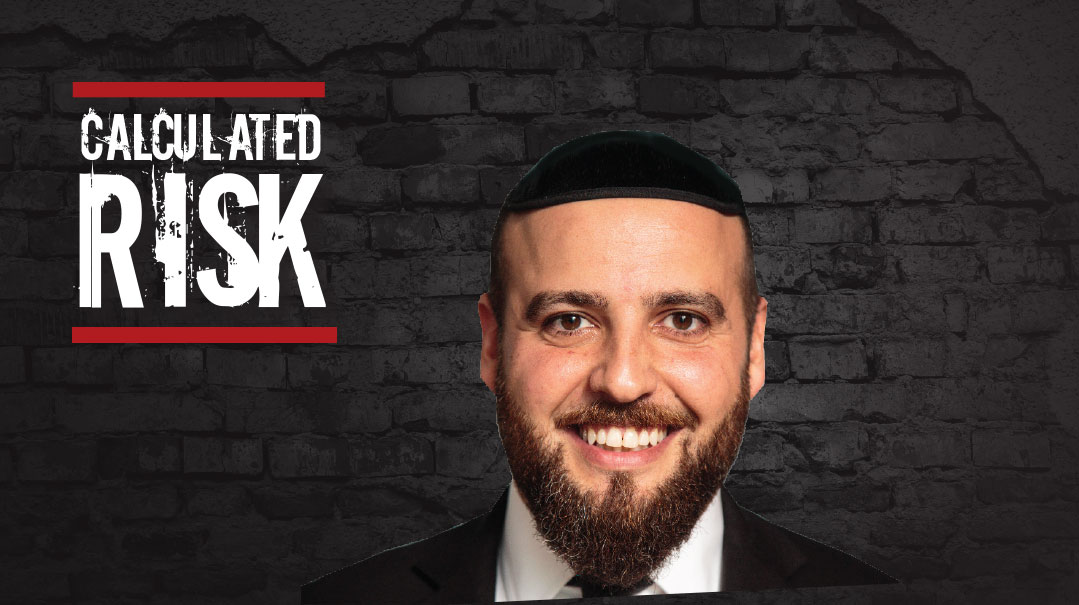What to Do When It Doesn’t Work

It’s not my responsibility to fix anyone — not even my child or my spouse

The Question
Hey Rabbi,
I
’ve heard so much about the importance of love and acceptance when interacting with people who are challenging or engaged in at-risk behaviors. But with all this talk about love and acceptance, there is usually no discussion about what to do when it doesn’t work — the person reacts unhealthily, or continues to engage in self-destructive behavior, or just doesn’t respond at all. Then what?
Akiva
The Answer
T
his is a very important question and one that deserves discussion.
Let’s start with a fact: People are afraid to accept and love each other. Sometimes this is because we’re afraid that if we display acceptance and unconditional love to someone, that translates as tacit approval of their choices and behavior. This is not a baseless fear.
However, acceptance and unconditional love are necessary before any move can be made to correct or condemn. At the recent Agudah convention, Dr. David Leiberman said, “People do not care what you know until they know that you care.” I’ll add that people cannot know that you care until you prove it through acceptance and love; that’s the prerequisite for an individual to be willing to listen to you. When someone rejects your help or acts out when you are trying to help them, it’s often because this step was skipped.
The way to show acceptance and love is according to the recipient’s definition of love, not the giver’s. I can work all day to keep a roof over my kids’ heads because I love them and accept that they won’t be helping out with the rent. But if I miss a Drawing Funny Monsters Date with them, they won’t be feeling my love. My definition of love is supporting them and keeping them safe, their definition is spending time drawing funny monsters. If the goal is to get them to realize my love for them, then my definition is irrelevant.
Let’s analyze Akiva’s question. At first glance, it seems that Akiva is struggling with being supportive and accepting toward a person who is being difficult — let’s call him X (sorry, after 39 columns I’m done making up names). Akiva wants to know what to do if acceptance and love are not working. But in just about every situation where acceptance and love are “not working,” it is not the acceptance and love that’s the issue. Rather, it is the way you define “working.” Whenever anyone says something “isn’t working,” I ask them to clarify what “working” would look like. This usually reveals an ulterior motive. In this question, we get a description of what “not working” looks like: the person reacts unhealthily, or continues to engage in self-destructive behavior, or just doesn’t respond at all. “Working,” then, would mean that X becomes a healthy, productive person who doesn’t engage in at-risk behaviors.
The goal here seems to be to fix X, not to accept and love them. When I said earlier that acceptance and love is a prerequisite, I meant it literally. It on its own is a goal. Only once that goal is accomplished can we map out how to help (not fix) the person.
In this case the first step (love and acceptance) is being skipped because Akiva is in a rush to fix X. But you aren’t supposed to fix people — you’re supposed to understand them. (Trying to fix someone will lead to shaming them; shame is never effective or productive. Ever. Except for… wait, sorry, nope, no exceptions. Shame is always bad.) The opposite of trying to fix someone is acceptance.
It’s not my responsibility to fix anyone — not even my child or my spouse. My responsibility is to show love and acceptance. What will the results of love and acceptance be? The results won’t necessarily be any change in X. Rather, the results will be a change in Akiva. Love and acceptance are “working” when Akiva feels at peace with who X is.
X might not respond or reciprocate, but that’s not Akiva’s responsibility. X will meet their responsibilities when they’re ready. And if Akiva fulfills his responsibility of unconditional love and acceptance, then when X is ready, it will be easy and natural for him to turn to Akiva for help and advice.
Have a question for Rabbi Bensoussan? Email info@mishpacha.com.
Rabbi Yossi Bensoussan serves as mashgiach ruchani at Yeshiva High School of Cleveland. He is a Certified Alcohol and Substance Abuse Counselor (CASAC) who currently maintains a private practice, and does motivational speaking and community education on addiction all over the US and Israel.
(Originally featured in Mishpacha, Issue 840)
Oops! We could not locate your form.


